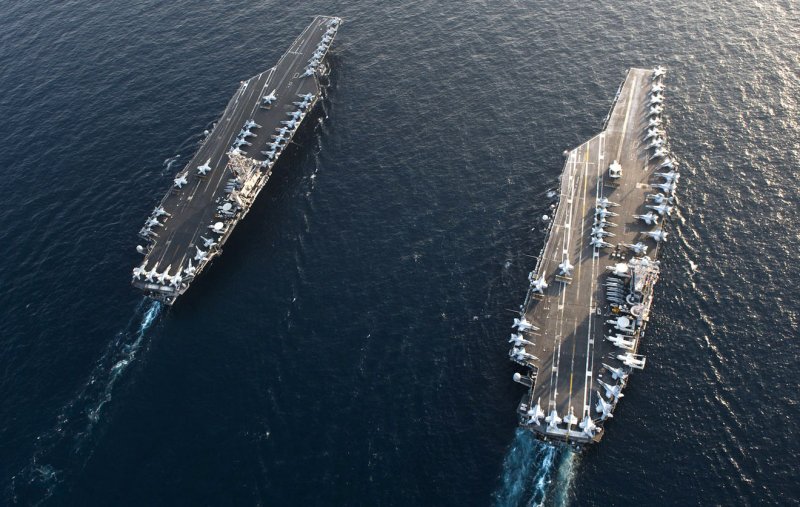1 of 2 | The Nimitz-class aircraft carriers USS John C. Stennis (CVN 74) and USS Abraham Lincoln (CVN 72) transit during a turnover of responsibility in the Arabian Sea on January 19, 2012. The USS Lincoln transited through the Strait of Hormuz without incident on January 22, 2012. The EU banned oil purchases from Iran on January 23, 2011. Iran has said it may blockade the Strait of Hormuz, but the U.S. Fifth Fleet has said it will not allow this to happen. UPI/Kenneth Abbate/U.S. Navy |
License Photo
WASHINGTON, Feb. 1 (UPI) -- There shouldn't be any major long-term oil market effects because of U.S. and European sanctions on Iran, an executive at the IEA said.
The U.S. and European governments targeted sections of Iran's energy sector as punishment for a nuclear program, which Tehran maintains is for peaceful purposes. Critics, however, say the program is a precursor to nuclear weapons development.
Richard Jones, deputy executive director of the International Energy Agency, told the Platts news service that there was no current market disruption because of restrictions placed on Iranian crude.
"No disruption has occurred," he said. "And even if there is a disruption, it may well be like the Libyan issue where it starts because a country decides not to take Iranian oil and then maybe Iran finds buyers for 80 percent of that oil or 60 percent of that oil."
The IEA last year called on member states to release oil from strategic reserves to offset market disruptions brought on by the war in Libya last year. Disruptions from Iran, said Jones, would be short-term.
"When we look at the Iranian sanctions, especially the European boycott, if the oil flows somewhere, there will be short-term dislocation effects but it shouldn't have a huge impact on the overall market unless some of the oil just is never picked up," he said.















